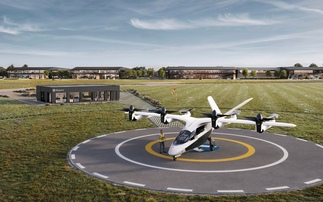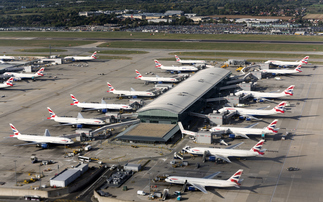Key ICAO committee recommends adoption of carbon standard for aircraft, as pressure on aviation industry to support Paris Agreement mounts
An official international carbon standard for aircraft designed to accelerate the shift towards more fuel efficient aviation fleets made "further and important headway" yesterday, according to the UN's International Civil Aviation Organization (ICAO).
The agency said the proposed environmental measure was unanimously recommended by the 170 international experts on ICAO's Committee on Aviation Environmental Protection (CAEP), paving the way for its ultimate adoption by the UN agency's 36-State Governing Council.
"It is particularly encouraging that the CAEP's recommendation today responds so directly to the aircraft technology improvements which States have forged consensus on at recent ICAO Assemblies," said Olumuyiwa Benard Aliu, President of the ICAO Council, in a statement. "Every step taken in support of ICAO's full basket of measures for environmental improvement is an important one, and I am sure the Council will be deeply appreciative of the this latest CAEP achievement."
The new standard would apply to any new aircraft designs from 2020, as well as deliveries of current in-production aircraft designs from 2023. The group of experts also recommended that the standard be applied to all new aircraft from 2028, which would effectively ban the production of the most inefficient models.
"The proposed global standard is especially stringent where it will have the greatest impact: for larger aircraft," the ICAO said. "Operations of aircraft weighing over 60 tonnes account for more than 90 per cent of international aviation emissions. They also have access to the broadest range of emissions reduction technologies, which the standard recognizes."
Aliu said the new standard would support the aviation industry's long-standing goal of delivering net emissions reductions across the industry.
"The goal of this process is ultimately to ensure that when the next generation of aircraft types enter service, there will be guaranteed reductions in international CO2 emissions," he said. "Our sector presently accounts for under two per cent of the world's annual CO2 emissions, but we also recognize that the projected doubling of global passengers and flights by 2030 must be managed responsibly and sustainably."
The move was welcomed by Michael Gill, executive director of the Air Transport Action Group, a cross-industry body focused on sustainable aviation. "Following the landmark Paris Agreement in December last year, aviation is pressing ahead with its own climate action plan," he said. "Today's decision on the ICAO CO2 Standard provides a significant step towards the industry's long-term goal to halve aviation CO2 and much-needed momentum ahead of the ICAO Assembly in September, at which governments are expected to agree on a global market-based measure for aviation."
He added that the standard would build on the significant progress the aviation industry has already made in improving fuel efficiency.
"The CO2 Standard mandates what were previously voluntary actions by aircraft and engine manufacturers, based on the demands of their airline customers," he said. "Aviation has always had a focus on efficiency. A flight taken today will produce on average half the CO2 produced by the same flight in 1990. This has been made possible through a range of climate actions, including new technology; better operation of existing aircraft; and improvements in infrastructure."
However, the proposals received a mixed welcome from green groups, many of which have been fiercely critical of the slow progress the ICAO has made in introducing climate policies and the removal of commitments on aviation and shipping emissions from an earlier draft version of last year's Paris Agreement.
Annie Petsonk of the Environmental Defense Fund said the standard would help ensure new aircraft were more efficient, but was "less ambitious" in its attempts to improve aircraft already in production.
"The technical committee has called for a review, to be concluded by 2019, which could be an opportunity to increase the ambition of the standard as it applies to these aircraft," she said. "In the meantime, industry should aim to improve the efficiency of aircraft coming off production lines - starting now."
She also urged governments to build on the standard by this year delivering on long-promised plans to introduce a market-based mechanism for tackling aviation emissions. "Less than two months after countries reached a landmark climate deal in Paris, the standard takes a useful first step," she said. "As the spotlight shifts, we look to the Obama Administration to lead the drive to get agreement on the real prize this fall: a market-based measure to cap aviation emissions and drive pollution down, not up."
The ICAO is scheduled to meet this autumn to again discuss plans for a market-based mechanism that could see an international price imposed on aviation emissions. Pressure is mounting on the group, and its sister body the International Maritime Organisation (IMO), to deliver ambitious new plans after aviation and shipping were excluded from the Paris Agreement on the understanding the ICAO and IMO would deliver new policies to tackle the industries' climate impact.
However, previous attempts to deliver international climate policies for aviation and shipping have repeatedly faltered as a number of countries have resisted attempts to impose new carbon taxes or other costs on their domestic industries. A separate push by the EU to impose carbon pricing on flights to and from the bloc sparked a major row with the US and China as both countries resisted requirements for their airlines to purchase carbon allowances,.
This article is part of BusinessGreen's Road to Paris hub, hosted in association with PwC.











